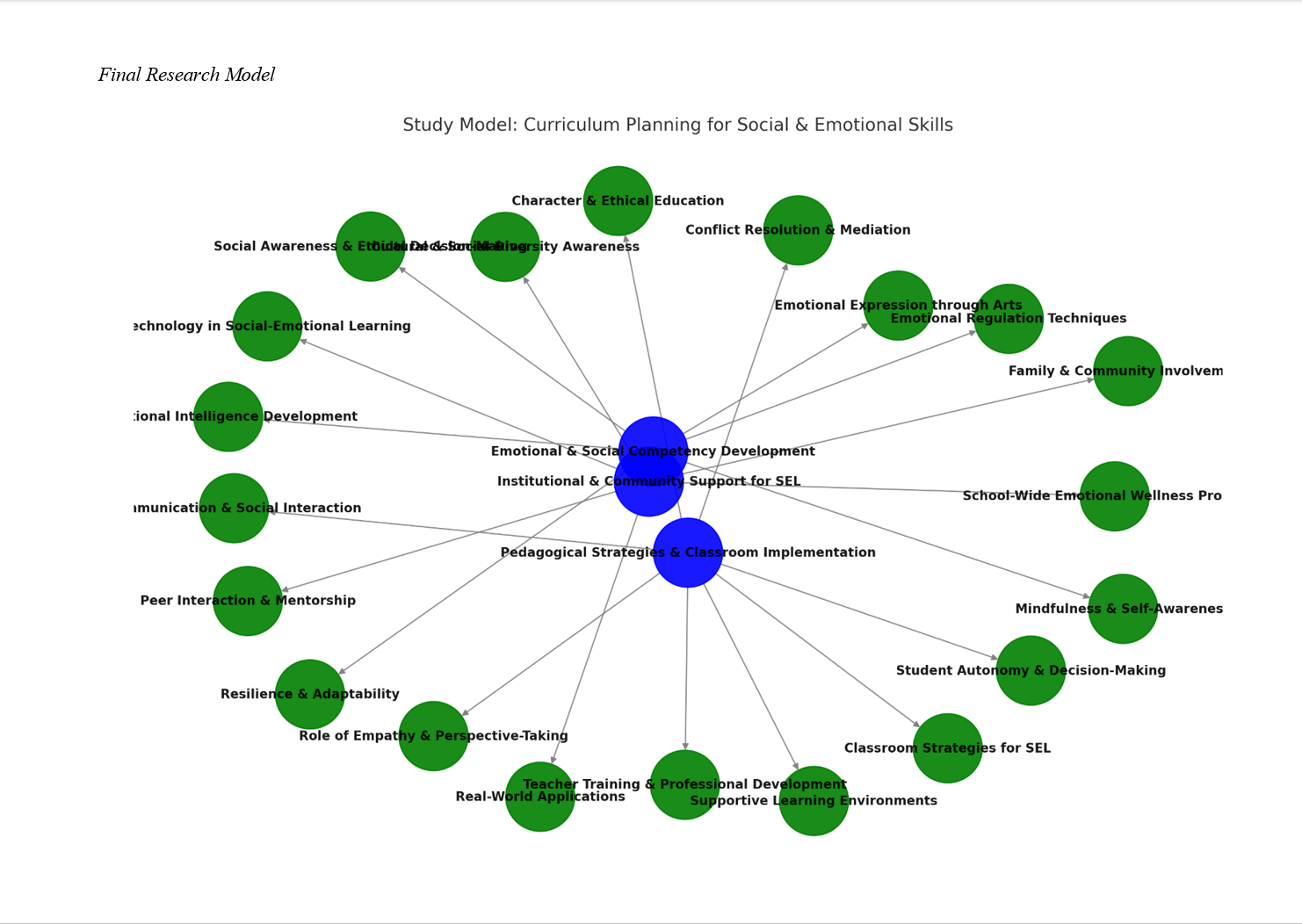Developing a Curriculum Planning Model for Teaching Social and Emotional Skills
Keywords:
social-emotional learning, curriculum planning, teacher training, emotional intelligence, educational policy, resilience, experiential learningAbstract
This study aims to develop a comprehensive curriculum planning model for teaching social and emotional skills by identifying key components that enhance the effectiveness of social-emotional learning (SEL) in educational settings. Given the increasing recognition of SEL’s role in student well-being and academic success, this research seeks to address gaps in existing SEL curricula by proposing an integrative framework that aligns emotional and social competency development, pedagogical strategies, and institutional support. This qualitative study employed a semi-structured interview approach, gathering insights from 30 participants, including educators, curriculum developers, and policymakers from Tehran. A purposive sampling method was used, and data collection continued until theoretical saturation was achieved. Thematic analysis was conducted using NVivo 24, following a three-stage coding process: open coding to identify initial themes, axial coding to group related themes, and selective coding to develop overarching categories. The model was constructed based on these findings, ensuring a structured approach to SEL curriculum planning. The results revealed three primary dimensions essential for SEL curriculum planning: emotional and social competency development, pedagogical strategies for classroom implementation, and institutional and community support. Key themes included the necessity of teacher training, the role of resilience and emotional regulation, the importance of experiential learning, and the integration of SEL within educational policies. Participants emphasized that effective SEL programs require structured frameworks that support students’ emotional well-being, foster positive relationships, and provide real-world applications for social-emotional skills. This study contributes to the field of SEL by proposing a curriculum planning model that addresses critical gaps in current SEL frameworks. By emphasizing teacher preparedness, experiential learning, and institutional integration, the model provides a structured approach to embedding SEL in education systems. Future research should explore the long-term impact of this model on student development and learning outcomes.
Downloads

Downloads
Additional Files
Published
Submitted
Revised
Accepted
Issue
Section
Categories
License
Copyright (c) 2025 Hosein Baghaee (Corresponding Author); Parisa Valizad Ziyaie , Raziyeh Jafarpour, Fatemeh Valipour (Author)

This work is licensed under a Creative Commons Attribution-NonCommercial 4.0 International License.







